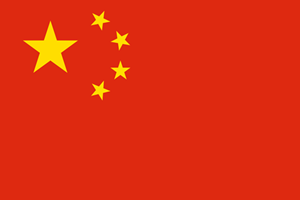Banks began to reduce cashback due to the regulation of the tariff for accepting cards
Large banks began to reduce the amount of cashback and change loyalty programs due to the reduction in the size of the acquiring commission from April 18 at the request of the Central Bank. The conditions will change at least Sberbank, Rosbank and Russian Standard Bank, follows from their responses to requests from RBC or information on their official websites.
From April 18 to August 31, 2022, the Bank of RUSSIA set the maximum value of acquiring commissions at the level of 1% for paying socially significant goods and services with cards. The size of the interchange, which is the basis of the acquiring commission and at the expense of which banks pay cashback, is set at 0.7%. Prior to this, the rates for acquiring were at the level of 1.2–2.2%. The store pays these commissions to its servicing bank.
The Central Bank temporarily reduced fees for accepting cards for payment Finance
Reduced commissions apply to the retail sale of food products, consumer goods, including clothing, fuel, medical devices and medicines, as well as services in the areas of communications, housing and communal services, medicine, education, culture, tourism and passenger transportation.
Experts warned that the reduction in the acquiring commission could lead to a reduction in rewards for non-cash purchases. This has already happened in 2020, when the Central Bank set an acquiring commission of 1% for purchases in online stores in order to support businesses in a pandemic.
How banks change cashback
“We will announce changes to the loyalty program in the near future. We plan that they will be temporary, after which customers will be able to continue receiving their bonuses in the usual amount, ”a representative of Sberbank told RBC. He did not specify how exactly the amount of accrued bonuses for non-cash purchases will be reduced.
Read on RBC Pro Pro Reviving cold calls as the main sales technique in a crisis:4 Step Articles Pro What are you doing wrong when checking the counterparty:Top 5 Mistakes Cases Pro Sanctioned Logistics:what development paths do Russian companies have Articles Pro Planes no longer fly:how to deal with business trips and vacations Instructions Pro From aesthetic intelligence to debt crises:7 Books for ManagersThese Seven Habits Leaders Need to ControlHow the regulation of the acquiring commission will affect the amount of cashback Finance
From April 18, Rosbank is changing the conditions for the loyalty program "Everything is Possible". For purchases from the list of the Central Bank, he will charge 0.5% cashback instead of 1% before. For some of the categories from the list, he previously charged an increased reward of 3%, but now he will stop doing this. However, for some products this promotion will continue. The accrual of increased cashback is canceled in the categories “household goods”, “pharmacies”, etc., but remains in the categories “gas stations” and “parking”, follows from the tariff conditions on the bank’s website. The information was confirmed by a representative of the bank.
"Russian Standard" during the preferential rate of the Central Bank will also charge 0.5% instead of 1-1.5% for categories of goods and services from the list of the Central Bank. The changes relate to loyalty programs RS Cashback, Travel, Membership Rewards, RSB Imperia Rewards, RSB World Mastercard Cash Back, according to a message on the bank's website.
Tinkoff Bank and Otkritie did not change the terms of the loyalty program, and at the moment MCB does not plan to do this, their representatives told RBC. Other major banks did not respond to inquiries.
Banks recorded a surge in Russian demand for Mir cards
How is cashback formed?
Banks charge cashback to encourage customers to make card payments more often. Thus, the bank that issued the card generates income through interchange. Typically, loyalty programs offer increased bonuses in one of the categories (cars, restaurants, travel, etc.) at the level of 5–10% of the transaction, for all other non-cash transactions, an average of 1% of the purchase is charged.
Loyalty programs can also involve partners who pay a commission to banks for the fact that credit organizations bring more customers to them. Partners are both manufacturers of goods and retail chains. The commission paid by manufacturers can reach 15% of the cost of the goods. The tariff for retail chains varies at the level of 5-10%.
According to the latest data from Frank RG, in 2020, banks paid out RUB 114 billion to their customers under loyalty programs. — 30% more than in 2018 (88 billion rubles). Market research for 2019 was not conducted. In 2020, the share of active cards with an already connected loyalty program increased to 50%, in 2018 it was 35%.

